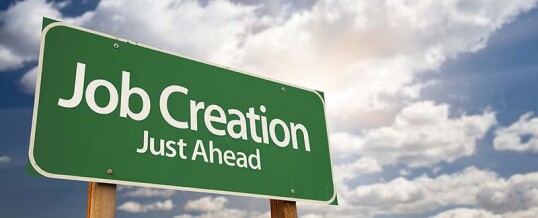
As if waking from a stupor, Congress is finally willing to tackle job creation.
The Jumpstart Our Business Startups (JOBS) Act introduced by Republicans is a rare occasion of bi-partisan support. It quickly moved through the House and garnered a 390-23 vote for approval with even Congresswomen Maxine Waters voting for it. It eventually passed the Democratic-controlled Senate despite having the Democrat leadership including Senators Harry Reid, Dick Durbin and Mary Landrieu initially aligned against it.
Something lit a fire under Congress. Could it be that their approval rating is below 12 percent? Or that many are up for reelection this November? Whatever the reason, why did it take four years for Congress to realize that with 25 million unemployed and underemployed Americans they might want to pay attention to this national tragedy?
We have been demanding action. It is nice to see that Congress has taken a big step in the right direction to create more jobs.
The JOBS act makes it easier for startup companies to raise money from small investors and would diminish some restrictions for small companies that want to promote the fact that they are looking for money. This is encouraging because this was a benefit only given to larger companies. It’s all about cutting red tape and regulation which costs the U.S. economy a mind-bursting $2 trillion a year.
What this means is that Congress has finally recognized that the federal government should reduce the regulations impacting small business. Congress does not create jobs – the private sector does. The JOBS Act seeks to remove many of the regulations holding small businesses back, and putting in force a roadmap for growth that is not encumbered with layers of new regulations. Regulations tell a business what it can’t do – the JOBS Act tells small business what it can do.
There’s a reason that small business needs to become unshackled from federal regulations: they are the nation’s job creators. There are 28 million small businesses in the U.S., and the U.S. Census Bureau estimates that they employ over half the private sector workforce, are responsible for over half the GDP and will create over 80 percent of net new jobs.
According to a 2010 report from the Global Entrepreneur Monitor, 14.3 percent of early-stage entrepreneurs (those in business less than 42 months) expect to create 20 or more jobs in five years.
A Pew Research Poll found that small businesses are responsible for 70 percent of all jobs created this past decade.
Aaron Chatterji, a senior economist at the White House Council of Economic Advisors, recently told reporters that “policy makers should begin thinking about small business policy and entrepreneurship policy as distinct categories. For example, small business policy might focus on ensuring access to credit, providing technical assistance and helping promote access to new international markets. Entrepreneurship policies could include strategies to encourage availability of early stage capital in some sectors.”
This is exactly what the JOBS bill is recommending. When you give small business access to capital they can start expanding and hiring.
Every small business started with a dream and an idea by a passionate entrepreneur. Then the business needed an infusion of cash, ideally from parties that shared the same passion. Yet, this access has become increasingly difficult, even from traditional banking sources.
The Small Business Administration (SBA) has been perceived as the historic conduit for small business dollars, but there is a debate over its efficiency.
Some critics argue that since SBA loan guarantees only go to a small fraction of small businesses, they wind up competing against other small firms that didn’t benefit from the loans. This is counter-productive.
There’s a movement afoot to combine the SBA with the U.S. Department of Commerce and several other agencies to streamline operations and open up the playing field so more small businesses can receive access to capital. Any governmental body with the word “administration” in the title usually means untenable regulations.
As Ronald Reagan famously said, the scariest words in the English language are: “We’re the federal government and we’re here to help you.”
Ask any small business what they want from the federal government and the response invariably is: “Stay out of my business.”
This JOBS Act must be enacted immediately so small businesses can do what they do best: create jobs.
APR



